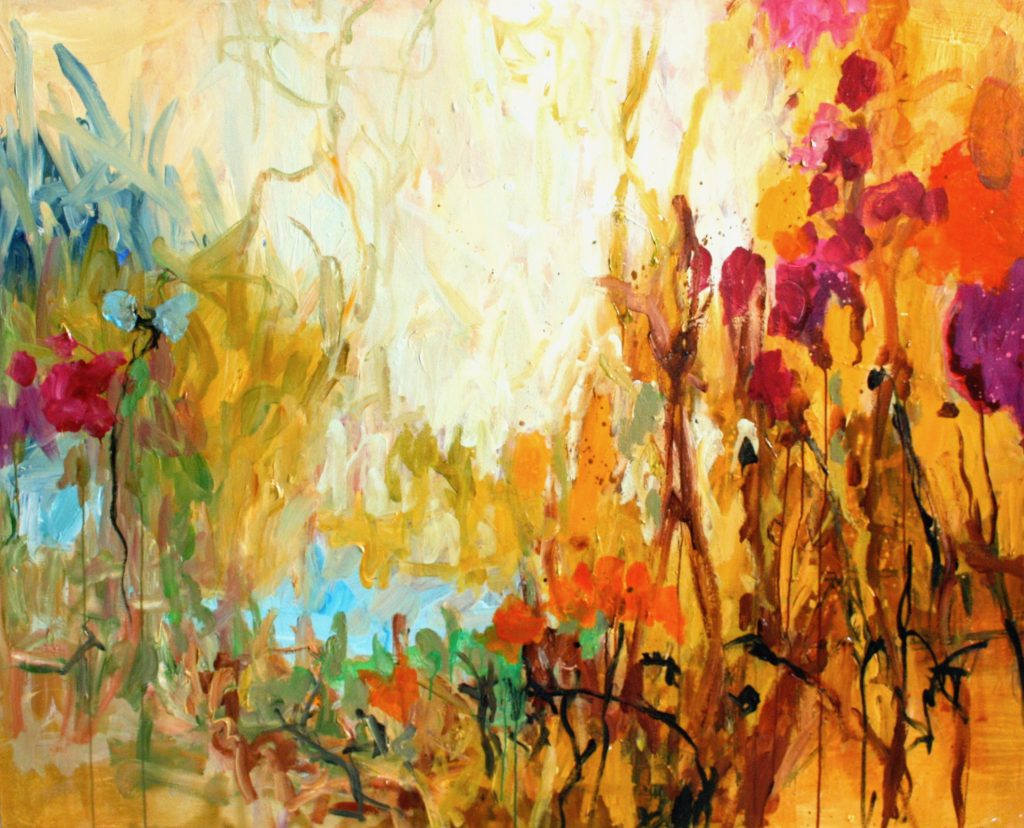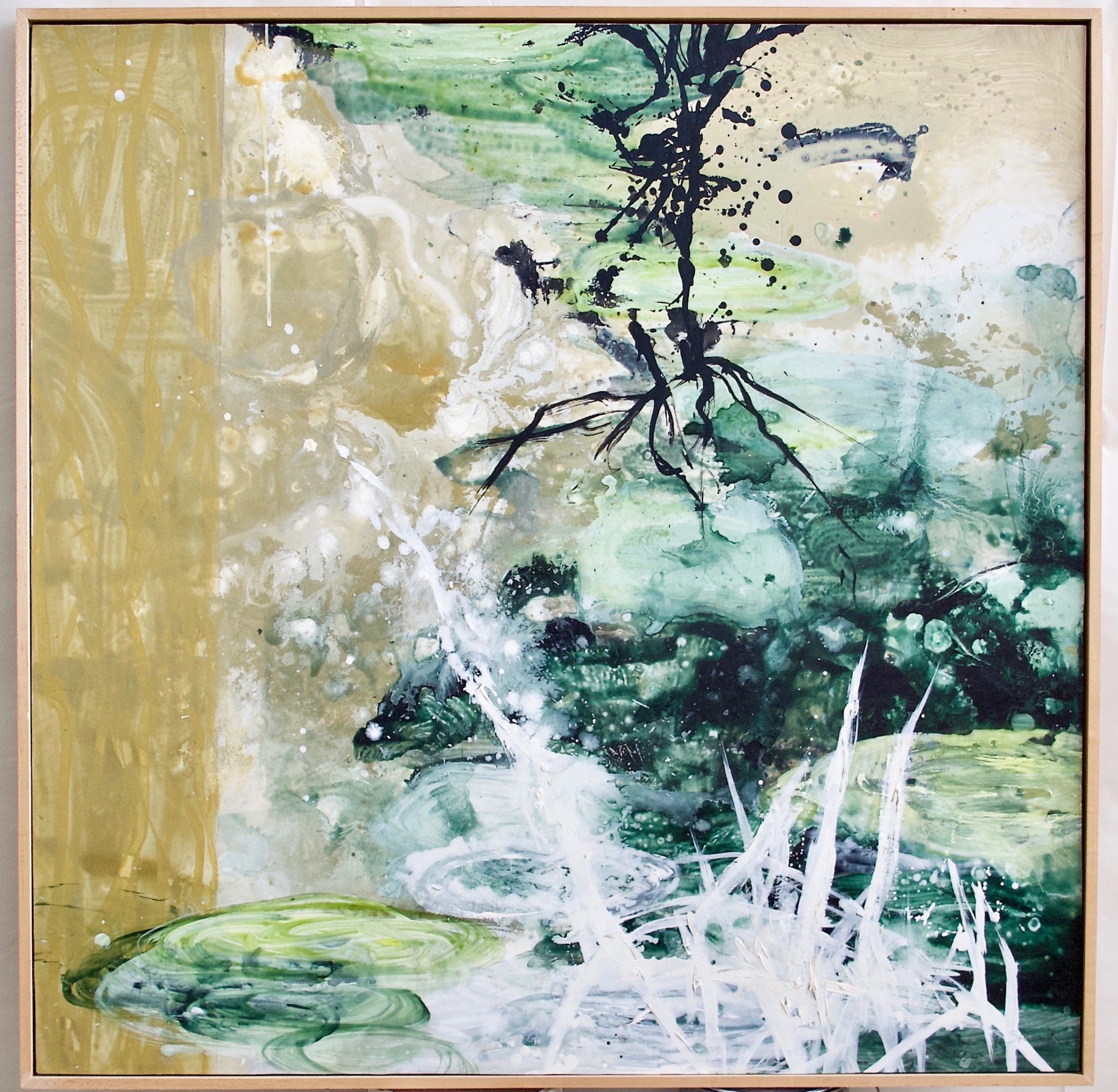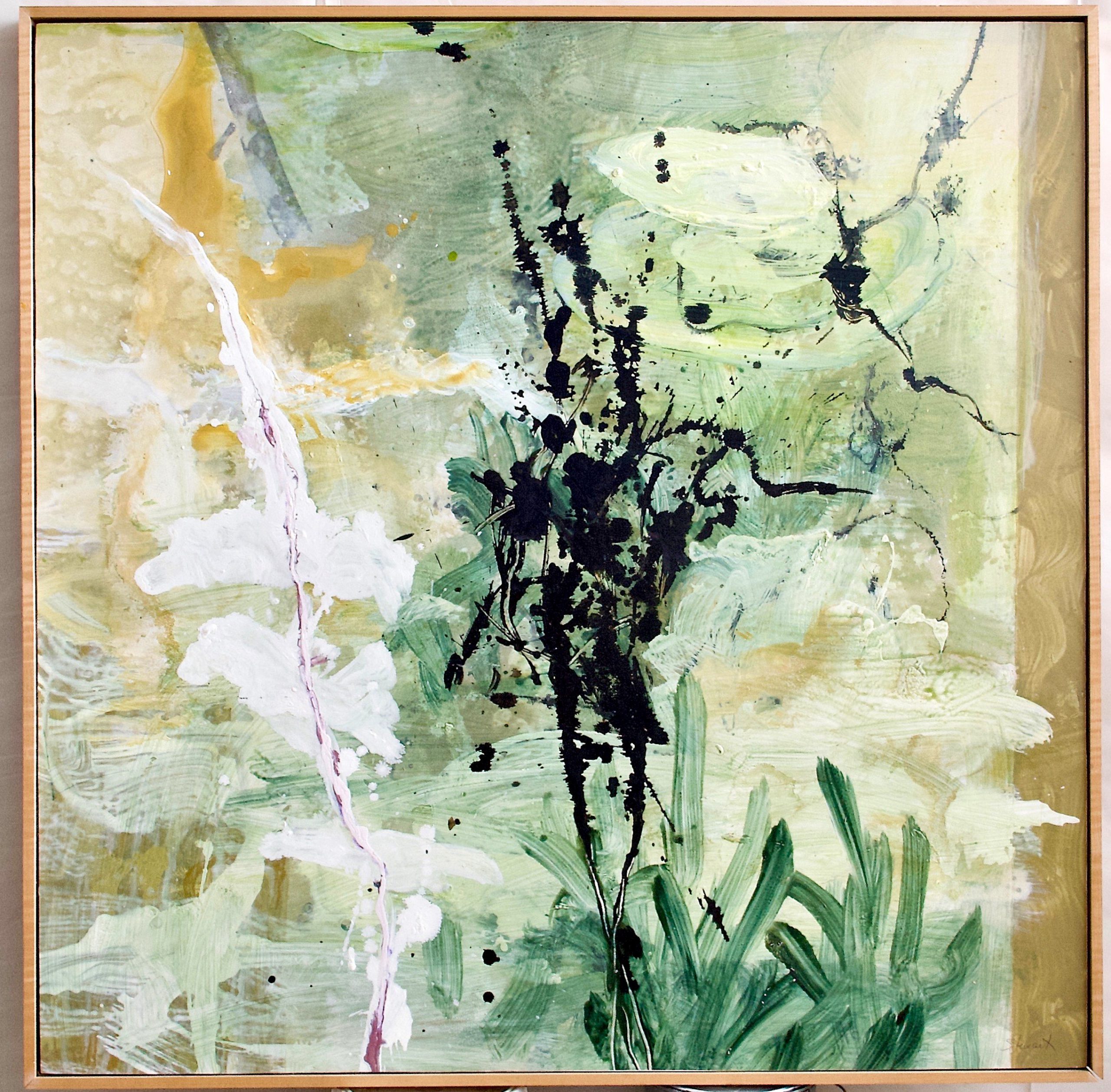Written for Ann Korologos Gallery by Claire de L’Arbre
January 29, 2020
The aim of art is to represent not the outward appearance of things, but their inward significance.
Aristotle
Residing somewhere between realism and abstraction, Allison Stewart paints visual diaries of her emotions about a landscape. Her nature based abstract paintings reflect the duality of substance and spirit, image and impression, observation and memory. The dualities continue in her geographical inspiration evoked by the vastly different landscapes of Colorado and Louisiana, where she shares her time with her husband.
How would you summarize your work and artistic motivation to a viewer?
I found this quote from Aristotle many years ago, and have used it as my mantra ever since, and it sums up my thoughts about my work: “The aim of art is to represent not the outward appearance of things, but their inward significance.”
I am not interested in realistic representations of nature, but in how nature works. What is it like for the plant to feel the wind? How does the earth react to the actions of man upon it? Does strip mining enhance the beauty of the land? I hope my paintings are deferential, not realistic. By suggesting nature, rather than realistically describing nature, I hope to invite the viewer in to participate in the wonders of the natural world.

Tell us about your journey to become an artist?
I got in through the backdoor. I was a biology major and got a job after college at a surgery research lab at a medical school. What I loved in all of my biology courses was what I saw under the microscope. After my children grew up, I received a Master in Fine Art from the University of New Orleans. I have been painting for about 40 years.
When you made the jump from scientist to artist, what differences and similarities did you most appreciate?
The scientist takes some known quantity and asks: what if? You start with the basis—the factual knowledge, and I wanted to take it further. As an artist, I don’t have to make biological drawings for anybody; I can just jump in.
My art has always had an organic underpinning—that’s my knowledge base—and that’s how life works. Even within the realm of beauty, it’s not about “pretty” it’s about depth and lasting values, and it’s about loss, beauty changes. Those are the things I think about.
My artwork conveys landscapes of feelings. I am thinking about how the land looks from aerial perspectives; how the land looks from an earth worm’s point of view—the very up close, microscopic point of view–and how similar those views can be. For instance, in Aspen you have the ski slopes that are phenomenal—almost like veins that run down the mountain—but if you look at cells and tissue, you see similar structures. It’s both the very up close and often unobserved nature that I love, and that cosmic view.
Allison Stewart, “My Wild Garden #23,” Mixed Media on Paper, 22 x 30 in | Allison Stewart, “My Wild Garden #20,” Mixed Media on Paper, 22 x 30 in |
Tell us about your approach and artistic flow in the studio.
I am usually working on 3-4 paintings at one time: two diptychs that are about 4 x 6 feet. I don’t do one painting like the next painting. I’m not a linear thinker. What makes a painting is the color and shapes—no matter the subject matter, those two things are the nuts and bolts. I play around with how far I can push the color, how far I can push the shapes.
[My paintings] tell me through the process which way the balance is. It works for me to keep it nice and loose and unformed until it tells me what it wants to be. Nature becomes different from season to season, year to year: how it grows, changes, matures, dies in winter, if it’s that kind of plant, so I want to keep that flow of life through the process. I am changing my perspective as I work. Painting in my studio is not sitting on a stool at an easel. I start with everything flat on the ground, walking around the painting as I paint, so I never know until about three quarters of the way which way it will be hanging. I build up the underpaintings while the canvas or paper is lying flat, and sometime during the process I set them up right.

Your work takes duplicities (creation and destruction, order and chaos, realism and abstraction) and brings them together on the canvas—what calls you to do so and to bring such different elements in to one?
A lot has to do with working on two canvases at once—a diptych—two sides of the same coin; it’s all one, but two parts. Everything has another viewpoint. We all have strong viewpoints, but for me there are always openings for a different perspective. I don’t really believe in absolutes. Being a painter, having that sense of wonder, I want to be surprised about what a magic nature gives me in unexpected ways. There’s certainly a lot to question, but there’s a lot to find wonder in, like how a tiny seedling grows to become a giant Oaktree over hundreds of years.
We are thrilled to be representing you at Ann Korologos Gallery. What would you like to share about your new arrivals?
Most of the work has a story underneath it that has to do with restoration, cultivation, conservation. It’s not about how nature looks for me, it’s about how I feel about it. I think about nature in the act of becoming, nature in the act of changing, of altering itself or being altered.
Allison, thank you for your time! To learn more about Allison Stewart, visit her artist page or contact us by phone, email, or by visiting Ann Korologos Gallery in Basalt, Colorado. Stewart’s work is currently on view in Western Moods, and always available at Ann Korologos Gallery. Discover artist statements of each by exploring the website or contacting the Ann Korologos Gallery team.
 Allison Stewart, “Natural Wonders #18,” Mixed Media on Panel, 42 x 42 x 2.5 in |  Allison Stewart, “Natural Wonders #16,” Mixed Media on Panel, 42 x 42 x 2.5 in |